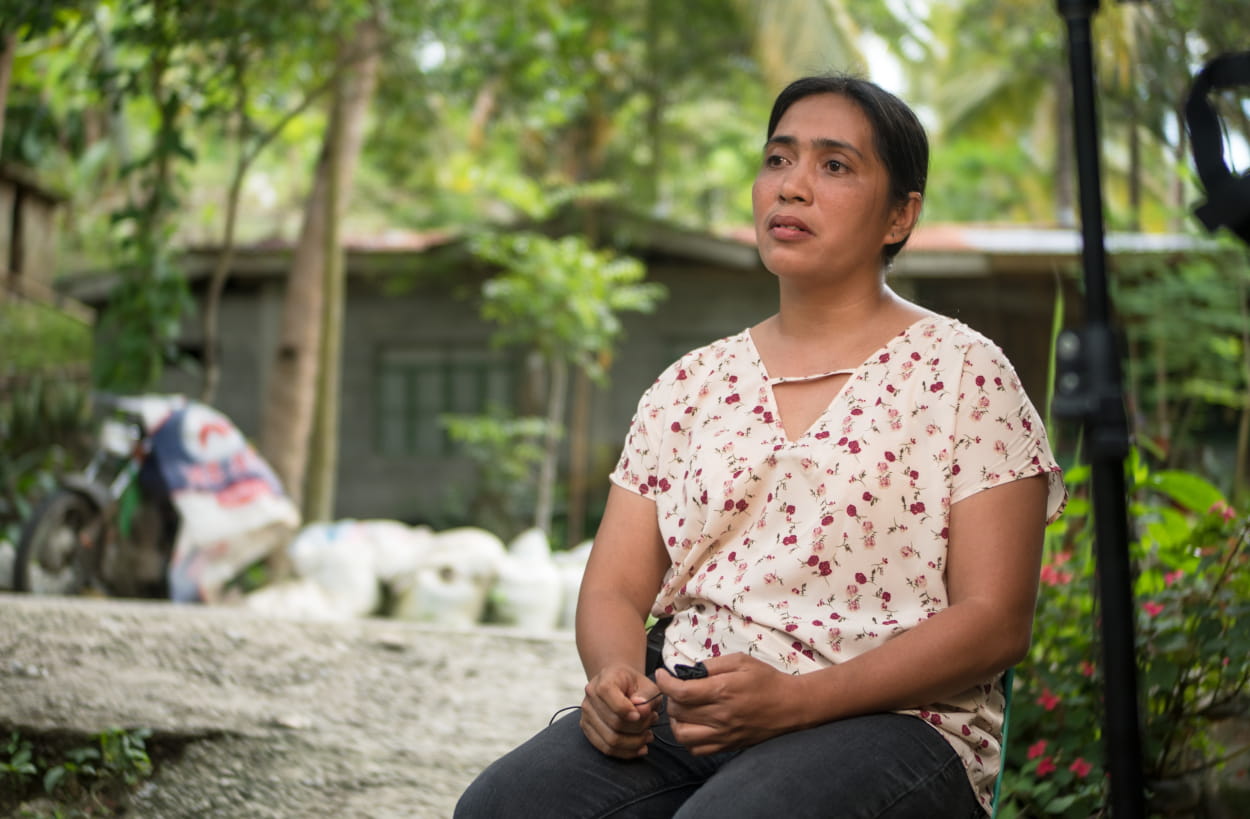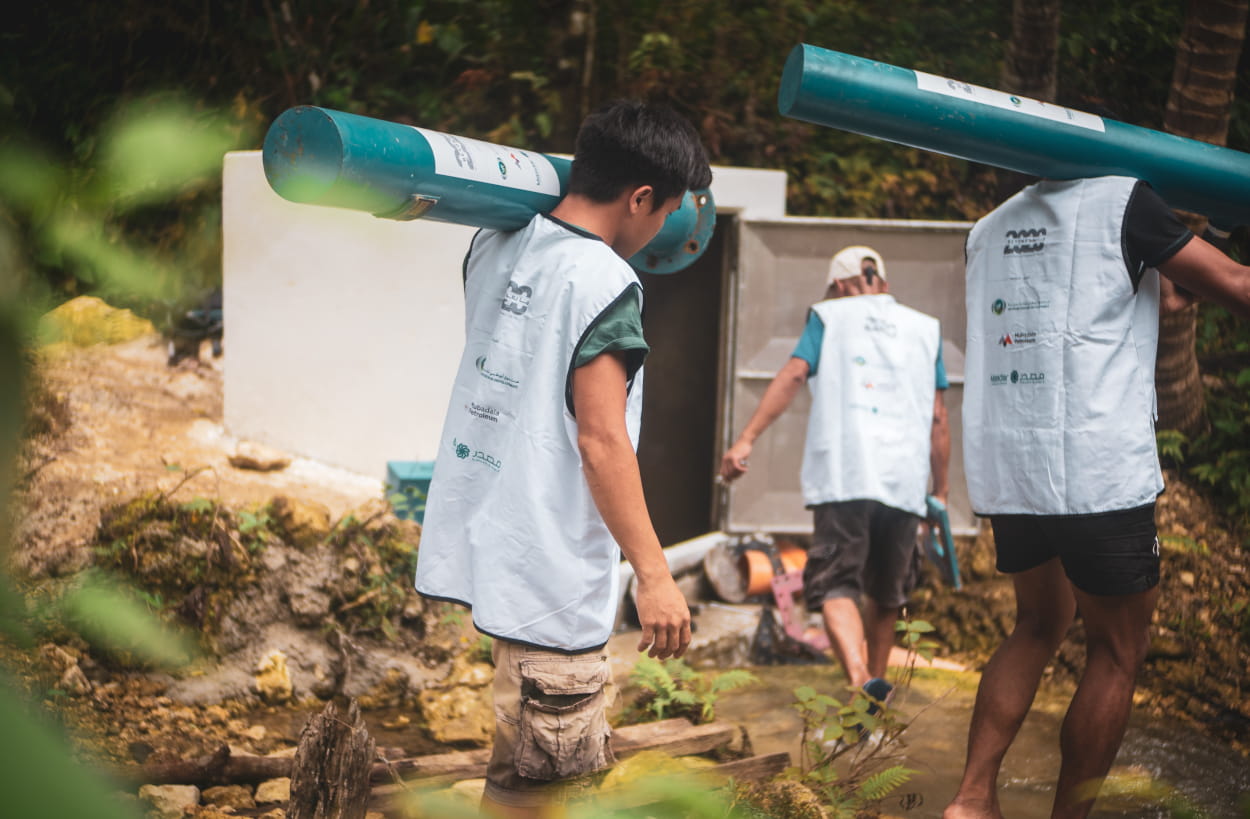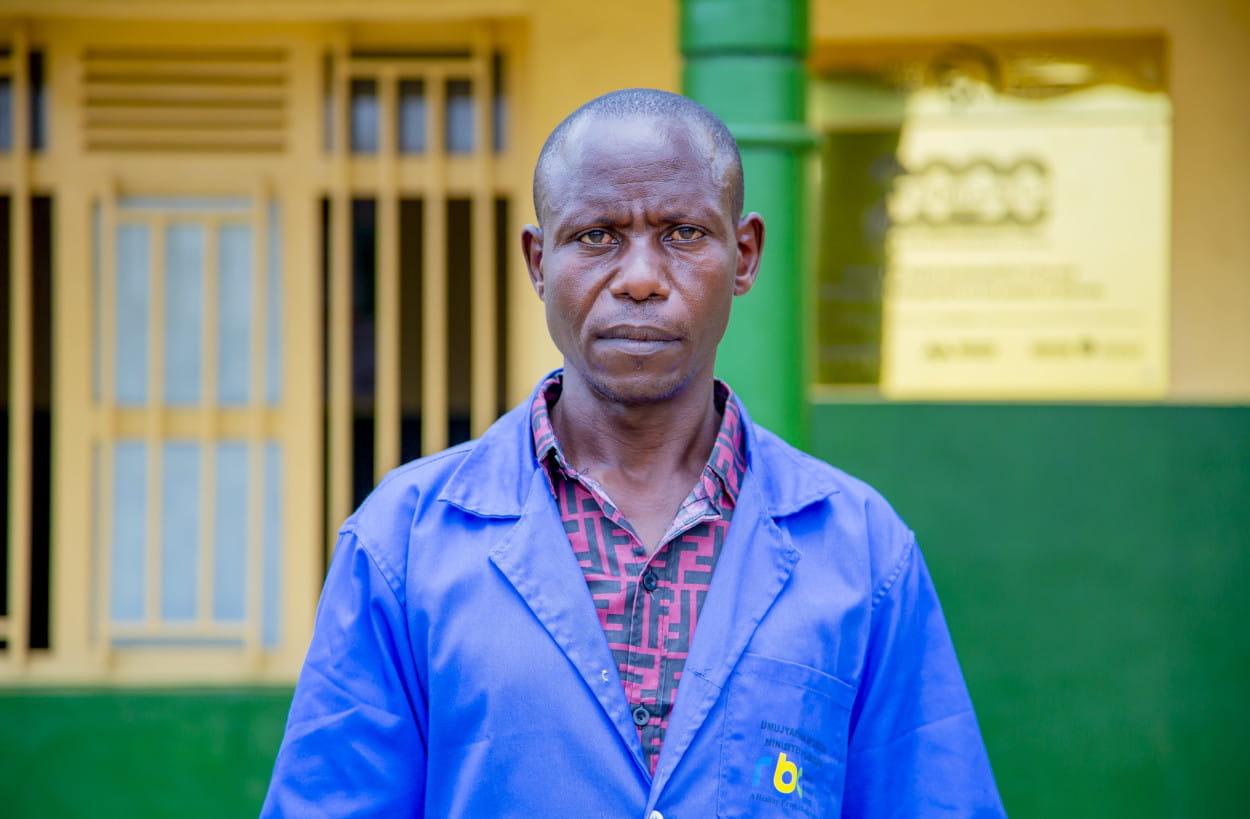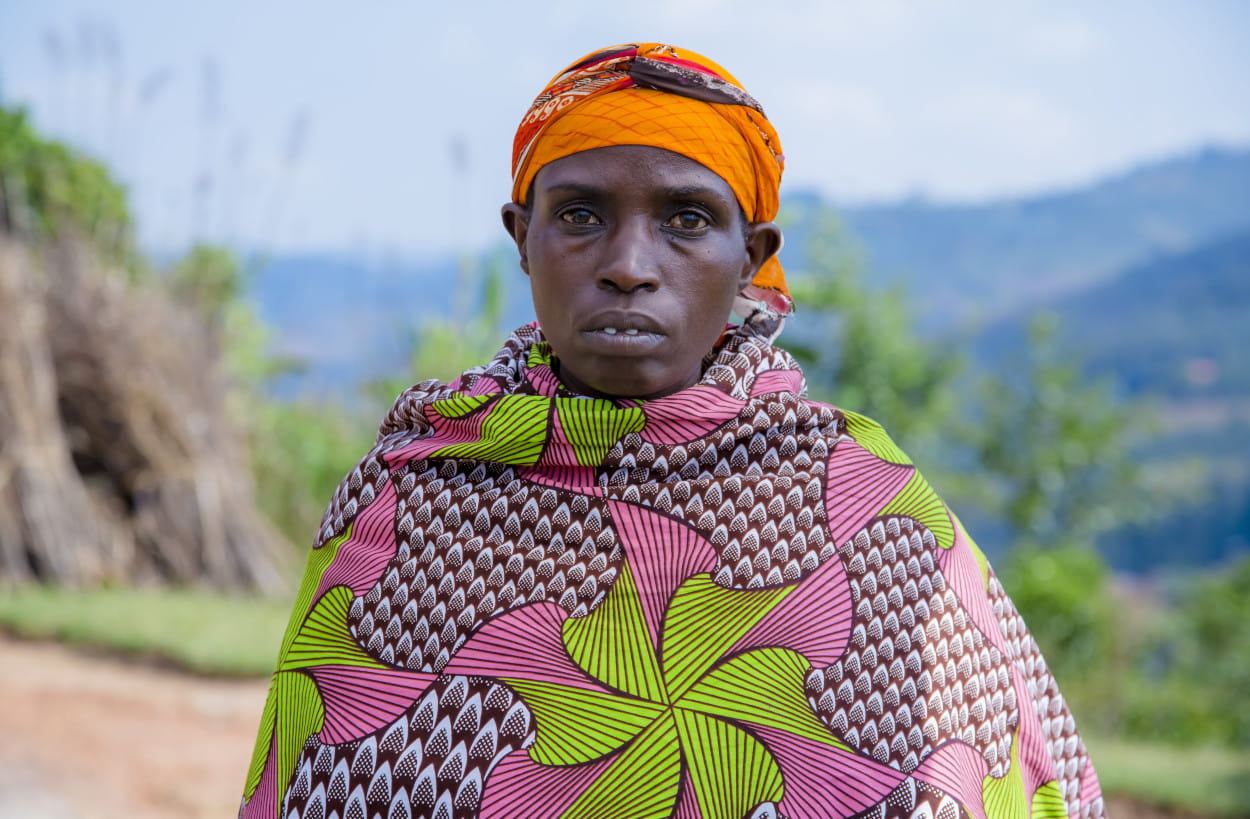The Zayed Sustainability Prize’s flagship platform for global outreach, Beyond2020, continues to engage vulnerable communities, the world over, as it provides tech for good and critical solutions aligned with UN SDGs to foster development that is inclusive and sustainable.
Guided by the timeless sustainability and humanitarian values of the late founding father of the UAE, Sheikh Zayed, the pioneering initiative oversees the deployment of sustainable solutions by technology providers, who are previous winners and finalists of the Prize. The initiative addresses some of the world’s most pressing sustainable development challenges, providing quality healthcare, nutritious food, essential energy, and access to safe water for drinking and sanitation.
18,000 Filipinos enjoy improved water access
The initiative returned to Southeast Asia following sustainable projects in Indonesia and Cambodia last year. The deployment is uplifting the lives of 18,000 people in rural Philippines by enhancing water access and reducing water costs by 85%.
Four hydraulic ram pumps and 13 water kiosks, developed by the Alternative Indigenous Development Foundation, Inc. (AIDFI), the 2020 Zayed Sustainability Prize finalist in the ‘Water’ category, are being used to impact 3,000 residents in the village of Cabagnaan in the Province of Negros Occidental and 15,000 people in 14 villages across Altavista in the Province of Leyte.
Notably, the communities of Cabagnaan and Altavista, that are located on different islands, share the same challenges, whereby water is not available and has to be fetched from a source located further downhill from the community, causing daily financial and physical constraints and burdens.
The innovative technology, which dates to more than 240 years, brings water uphill without the use of electricity or fuel and the emission of harmful gasses.
Today, this revived carbon-neutral solution is supplying clean water for drinking and sanitation, while also offering residents the opportunity to improve or pursue water-related livelihoods such as vegetable gardens, aquaculture, and livestock breeding. To reduce financial burdens posed by the high cost of water and tackle other associated issues faced by targeted communities, the solution utilises the energy contained in falling (free flowing) water and pumps water 24/7, and without the emission of harmful gasses.
As Beyond2020 rolled out its project on the ground, residents were very welcoming and excited about the much-needed water supply in their community.
For example, Joefanny Peras, a resident of La Castellana, Negros Occidental was taught to wake up early at the young age of six and do households chores like cooking in the morning. Peras remembers her younger days and says: “My childhood friends and I had to fetch water from a river called Tarog Dako, which was a kilometre away across a timberland to do our daily household chores. We did laundry and took a batch there while carrying gallons of water and rode on a carabao cart (a traditional mode of transport), just to relieve the weight of the water we were carrying.”
Prior to the ram pumps installation, Peras, who is now a mother, was still in charge of securing water for her family and says: “We would even spend a whole day just to secure water, which my husband and I would usually do so that our children can concentrate on their schooling. I don’t want my children to experience the hardships and sacrifices that I had to endure in life. It is much better not to be able to eat rice in a day than to have no water."
Peras, who previously spent $12 on water containers, laundry, and gas to obtain water each week, now spends only $1.50 for all her family’s water needs.
Peras has seen phenomenal transformations in her community and personal lifestyle since the installation of the pumps, easing her everyday life and improving her family’s economic situation. She is currently considering raising some livestock near their house.
Evelyn Lacson, who is an official in the Cabagnaan Municipality, recounted how insufficient and unreliable water supply that that is located several kilometres away forced people to wait in line for hours to get two containers of water. Lacson added that some people pay $0.20 per container to obtain water from surrounding areas, which is a large portion of their daily budget, making water the largest household expense for some families, outside of food.
Lacson said, “Thanks to the Beyond2020 initiative, people now share a reliable and sustainable water supply in their community and are very grateful. On behalf of the community, I would like to express my sincere thanks to all who made this deployment possible, and the effort will always be cherished within our hearts.”
Rural communities in Rwanda mark a new beginning with vital healthcare solutions
Beyond2020 also extended its humanitarian reach to rural communities in Africa by supporting critical access to healthcare services in Rwanda across a rural population of 20,000 people. The deployment aims to bring sustainable and affordable primary care to two regions in Rwanda.
Three clinics were set up in Cyuna, Gorwe, and Kihemvu in Rwanda’s Nyaruguru District - Southern Province and one clinic in Gatovu, Rubavu District in the country’s Western Province. These areas significantly lag behind the rest of the country in terms of health access and outcomes.
This is particularly important to address primary causes of community illness including pneumonia, malaria, and diarrheal disease. Furthermore, Beyond2020 will empower nurse-entrepreneurs to open and manage sustainable, tech-enabled, primary care clinics that improve access to quality healthcare services and essential medicines.
As part of the engagement, four nurses have also been empowered and trained in business management and 12 new jobs have been created to support operations across the four businesses. The clinics also provide direct surveillance, screening, and referral of any suspected cases of COVID-19 or other emerging epidemics.
Beyond2020 commissioned One Family Health (OFH), a leading global non-profit organisation and a 2020 Zayed Sustainability Prize finalist under the ‘Health’ category, who also entered a public-private partnership with Rwanda’s Ministry of Health (MoH), recently. As part of the agreement, OFH will establish 500 clinics in rural communities that operate on a mobile health system (mHealth), boosting efficiency and operations by enabling nurses to manage service data and patient records, electronically.
Known as the land of 1,000 hills, more than 80% of Rwanda’s population lives in rural areas where the mountainous terrain makes accessing distant health facilities a true challenge and studies show that reducing distance between patients and health centres can significantly increase vital health outcomes.
While Rwanda is recognised globally as a leader in improving health services through its successful adoption of Universal Health Coverage (UHC), community access to primary care remains a barrier to continued progress. With poor access causing people to seek healthcare later and less often, preventable, and treatable illnesses can become life-threatening in remote rural settings. Similarly, Rubavu faces similar healthcare circumstances, making the outreach to this part of the country critical as well.
In rural and remote areas of Rwanda where there is no health centre nearby, Rwandans face difficulties accessing primary health care. This impacts community wellbeing, educational outcomes and economic prosperity.
Innocent Ntakirutimana is a father of six who lives in the Mata Sector of the Nyaruguru District in Rwanda’s Southern Province. He is a farmer and also serves as a community health worker at the Gorwe Health Post. Innocent is one of thousands of Rwandans who are benefiting from the Beyond2020 initiative.
In the past, Innocent and his family struggled to get the health care they needed. That all changed thanks to the construction of a health post by the Beyond2020 initiative and One Family Health, a leading non-profit organisation and the 2020 Zayed Sustainability Prize finalist under the ‘Health’ category.
“We live in a remote village. My family and I would go to Nyamyumba Health Centre to get medical treatment, which is about 10-12 kilometres from where we live,” says Innocent.
“When we got sick and needed emergency care, we often ended up staying at home because the hospital was too far away. You can imagine how hard it was to travel 3-4 hours on foot or pay 8,000 Rwandan francs (~US$8) for a round-trip motorbike taxi to get to the clinic. Pregnant women were most affected,” he says.
The Beyond2020 initiative has provided a sustainable solution to these pressing challenges as the transformational initiative aims to reduce distances between patients and health facilities while increasing the use of health services in rural areas. Gorwe Health Post has been operating since June 2021.
Innocent’s community and thousands of other Rwandans living in rural areas in Nyaruguru and Rubavu districts can now access quality healthcare services and essential medicines. Through this partnership, healthcare providers in these districts have been empowered to manage sustainable, tech-enabled, primary care clinics to better serve patients and support their communities.
Innocent says that life has changed for the better since the opening of the health post. He wakes up early in the morning and takes care of his livestock before heading to Gorwe Health Post to fulfill his duties as a community health worker.
“It only takes me five minutes to get to the health post now. I’m proud to provide health care and health education to my community,” Innocent says.
“Having a health post in our community means a lot to me and my family. It helps us to prevent diseases and improve the quality of our lives.”
.svg?iar=0&hash=670E3638BC16C0DD69B262DD1184DEA8)

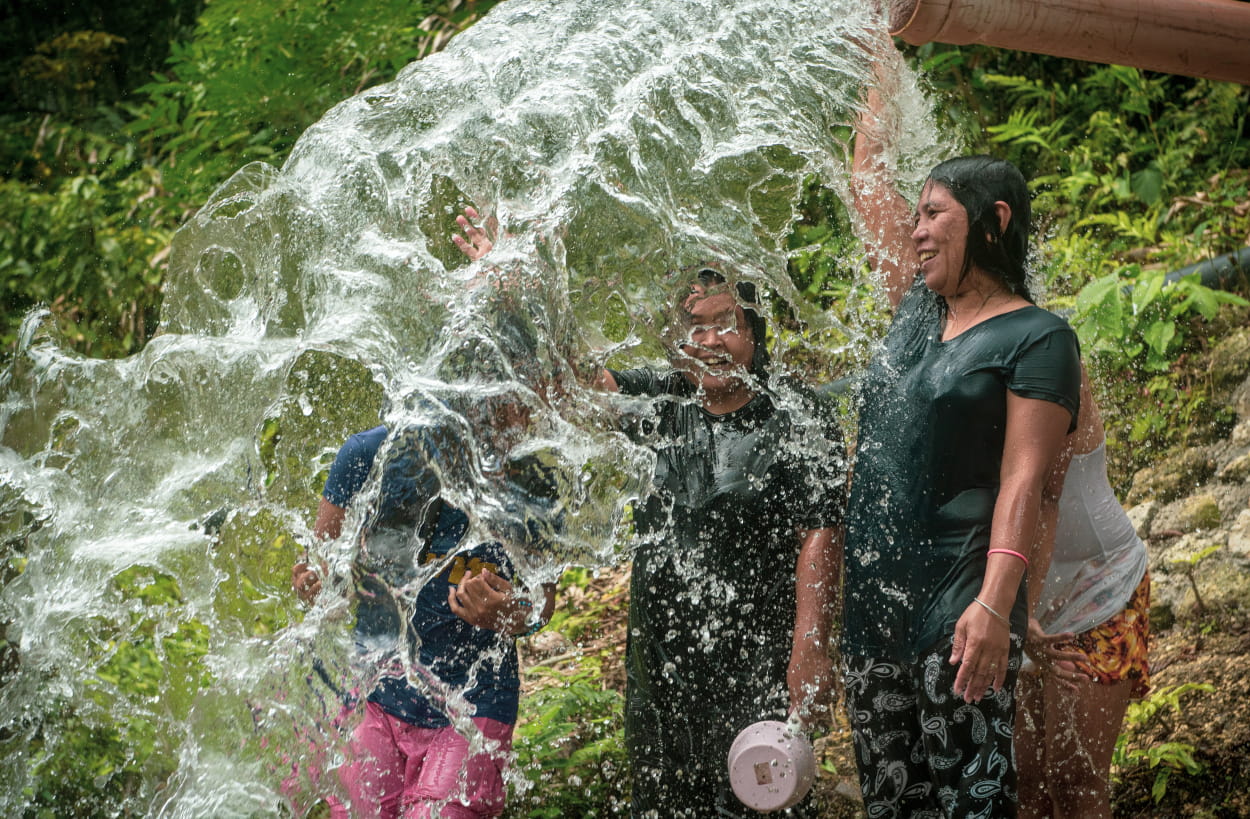
.jpg)
